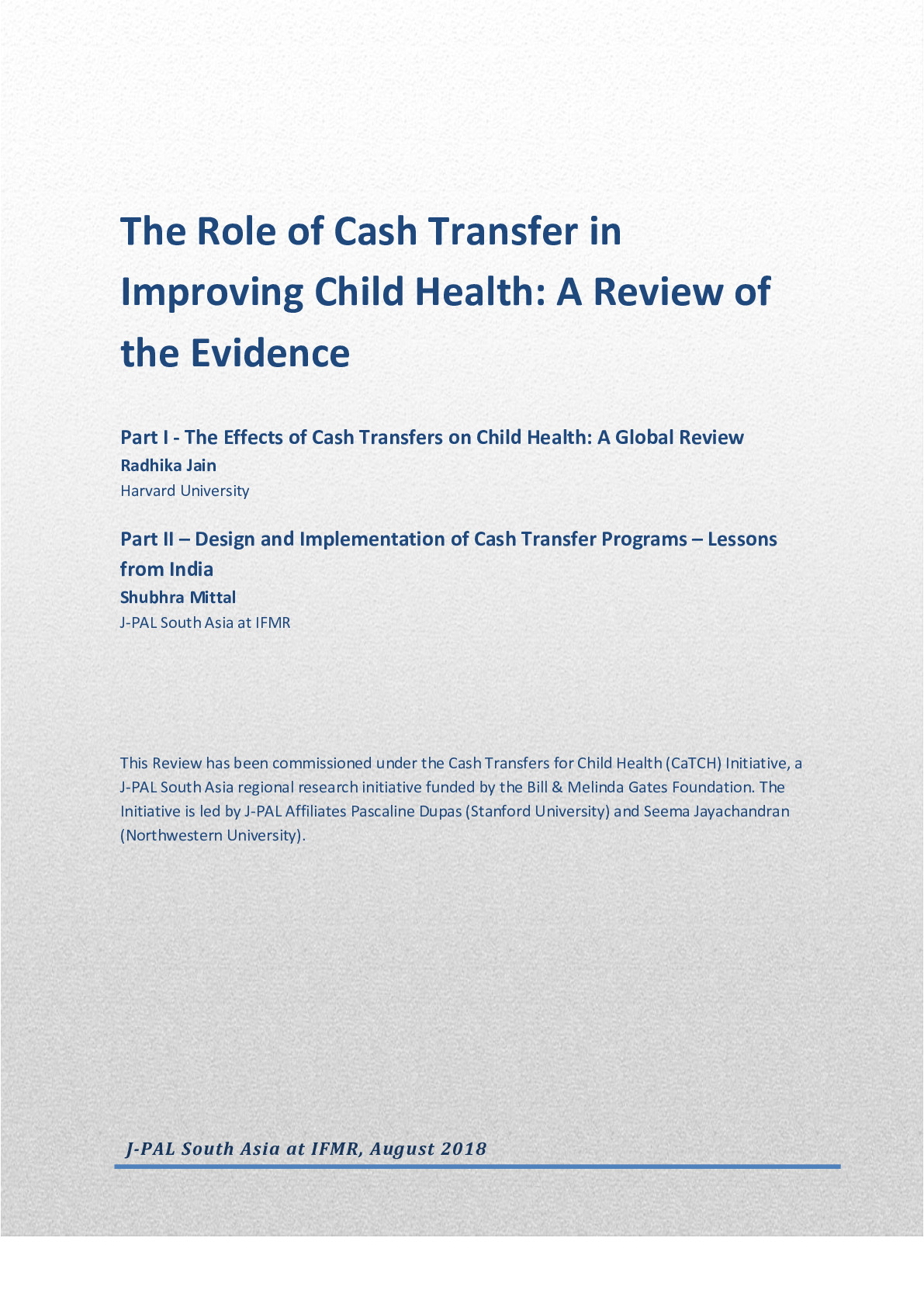The role of cash transfers in improving child health
Over the last several decades, government agencies in India at both the national and state level have introduced a number of cash transfer programs that aim to improve educational, maternal and child health, girl child or other social welfare outcomes. However, there is limited credible evidence on the impact of these programs on outcomes, as very few of these programs have been rigorously evaluated, and none through a randomized evaluation. The current push towards cash transfer programs in India provides an opportunity for researchers to rigorously study these programs and understand their impacts; generating rigorous evidence on the design and delivery of cash transfers programs aimed at improving child health is a primary goal of the CaTCH initiative.
Despite the dearth of rigorous impact evaluations of cash transfer programs in India, there is existing evidence that can inform the design of CaTCH-funded evaluations, as well as the design of current cash transfer programs. There are two types of evidence we review in this report. First, we review and collate the evidence on the effects of cash transfers on child health in developing countries. Second, we review existing process evaluations of cash transfer programs in India to understand how design and implementation features promote or hinder the success of cash transfer programs.
